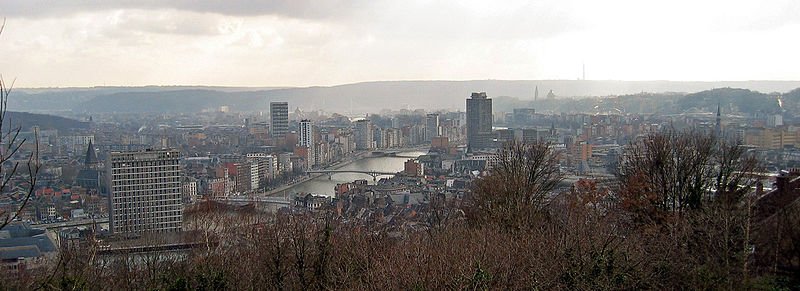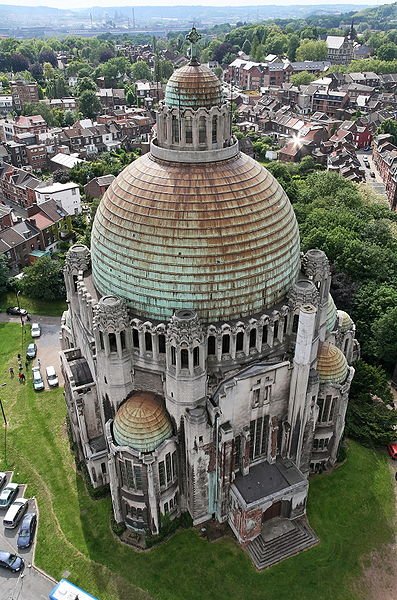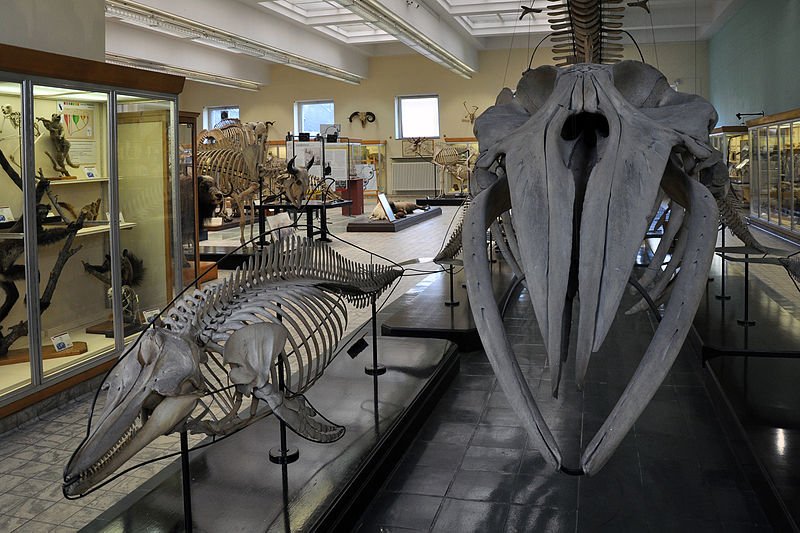 Liège, Belgium
Liège, BelgiumSource: https://commons.wikimedia.org/wiki/File:Liege_from_citadel.jpg
Author: Jrenier

Liège (Dutch: Luik, English, now uncommon: Luick, Walloon: Lidje, German: Lüttich, Latin: Leodium) is a city in the French-speaking Wallonia region of Belgium. Liège covers 69.39 sq km and has a population of 187,000 (2011 estimate). Its metropolitan area covers 1,879 sq km and has a population of 750,000. The city observes the Central European Time, which is UTC+1, and in summer the Central European Summer Time, which is UTC+2.
The city of Liège is in the valley of the Meuse River, near the border with the Netherlands and Germany. The Meuse meets the Ourthe river near the city.
 Église du Sacré Coeur de Cointe in Liège
Église du Sacré Coeur de Cointe in LiègeSource: https://commons.wikimedia.org/wiki/File:Eglise-Liege-Cointe-SacreCoeur-20060605.jpg
Author: Jacques Renier

Liège is the second most populous city in Wallonia after Charleroi. It is an economic and cultural center for the region. Among the industries located in Liège include steel making, aerospace technology, information technology, biotechnology and the production of water, beer and chocolate.
Liège is also a major transportation hub for Belgium. It has the third largest river port in Europe, and its airport is the 8th most important cargo airport on the continent.
Visiting Liège
You can fly to Liège, arriving at Liège Airport (LGG). From the airport, the public bus is the most economical option for reaching the city center.You can take high-speed trains from Brussels as well as Paris, Aachen, Cologne and Frankfurt to the Liège-Guillemins Railway Station, located to the southwest of downtown Liège.
 Skeletal remains of marine animals at the Aquarium-Muséum of Lieège
Skeletal remains of marine animals at the Aquarium-Muséum of LieègeSource: https://commons.wikimedia.org/wiki/File:Aquarium_Li%C3%A8ge_23082010_Vue_2.jpg
Author: Vassil

Places of Interest in Liège
- Aquarium-Muséum
An excellent aquarium holding some 2,500 specimens. The museum section has some 20,000 stuffed animals and skeletons.
- Archéforum
An underground museum showcasing the archaeological discoveries from Roman times, located under Place St-Lambert. - Cathédrale St-Paul
Built over six centuries since the 13th, this church was elevated to cathedral following the destruction of the Cathedral of St Lambert in 1794. - Cristal Park
Showhouse for glass manufacturer Cristallerie du Val St Lambert, with workshop where visitors can observe glass blowing, cutting and engraving. - Église St-Barthélemy
A collegiate church that dates back to the 12th century housing a number of treasures. - Église St-Jacques
A magnificent church in the Flamboyant Gothic style built between 1514 and 1538. - Gare de Liège-Guillemins
The railway station in Liège is itself a tourist attraction. The first international railway station in the world, today it is a hub for high-speed trains. - Le Perron
A monument in the form of a large stone pillar with fountains and balustrades. - Maison de la Métallurgie et de l'Industrie
Museum housed in a former steel factory showcasing the history of Liège's metalworks and industries. - Musée d'Ansembourg
This museum showcases the excellent craftsmanship of Liège furniture. It is housed in an 18th century banker's mansion. - Musée d'Art Moderne et d'Art Contemporain (MAMAC)
Housed in a Neo-Classical building from 1905, this museum has a collection of nearly 1,000 works of art including Picasso, Chagall, Monet and Gauguin. - Musée de la Vie Wallonne
An excellent folklore and local history museum housed in a former convent. - Musée de l'Art Wallon
This building erected in the 1970's exhibits works by Liège's artists including painter Lambert Lombard and sculptor Jean Del Cour. - Musée Grand Curtius
This is a museum of decorative arts. It brings together collections from various museums in Europe. - Musée Tchantchès
Museum celebrating Liège's mascot, a puppet in traditional costume. - Palais des Princes-Évêques
The Palace of the Prince-Bishop, an 18th century building in the Neo-Classical style at the Place St-Lambert. - Place St-Lambert
This is the central square in the middle of Liège.
 Latest updates on Penang Travel Tips
Latest updates on Penang Travel Tips

Copyright © 2003-2025 Timothy Tye. All Rights Reserved.

 Go Back
Go Back